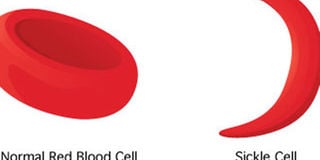Public awareness on sickle cell test is vital

More than 20,000 babies in Uganda are born with sickle cell disease each year, according to Ministry of Health.
What you need to know:
The issue: Sickle cell
Our view: If sickle cell testing is to be made mandatory, then the accompanying structures should be in place to support the testing couples, whatever the outcome.
Sickle cell is a blood disorder that causes red blood cells to change shape, clogging up arteries and causing a variety of related health problems - pain, anaemia, organ damage and stroke. Symptoms vary from mild to severe, and it can be fatal in some people.
According to information available from World Health Organisation (WHO), sickle cell anaemia is a major genetic disease that affects many countries in Africa. In countries such as Cameroon, Republic of Congo, Gabon, Ghana and Nigeria, the prevalence is between 20 per cent and 30 per cent while in some parts of Uganda, it is as high as 45 per cent.
A recent Uganda Sickle Cell Surveillance study that assessed the burden of the disease revealed the overall number of children with sickle cell trait was 12,979 while 716 had the disease. Of 112 districts sampled, 14 districts have 47 per cent of the sickle cell disease burden.
According to the Uganda Demographic and Health Survey (UDHS), 2016, the sickle cell disease prevalence stands at 0.73 while the trait prevalence stands at 13.3 per cent and it is estimated that 25,000 babies are born annually with the disease with 80 per cent dying before their fifth birthday.
As a result of this growing disease burden, the Anglican Church, specifically West Buganda Diocese, recently made it a requirement for all couples intending to wed to undergo sickle cell tests. The move, previously proposed by the government, has been lauded as a beneficial move towards reducing intermarriage among disease carriers, which increases the chances of producing sicklers.
While many stakeholders are for the test, it is imperative that the implementers of this plan consider the ease and availability of the test and create awareness among the public on the merits of such an action. A sickle cell trait test costs Shs80,000 at a private facility in Kampala. This is slightly higher than your average doctor’s consultation fee and regular laboratory tests.
Costs aside, there is a high emotional cost tagged to this type of testing.
In matters of the heart, where couples are preparing for a lifetime commitment, the stakes are higher. Since this test has not been institutionalised like the HIV test, there is no guarantee that testing couples will receive counselling on how to proceed after receiving the test results.
If sickle cell testing is to be made mandatory, then the accompanying structures should be in place to support the testing couples, whatever the outcome.




